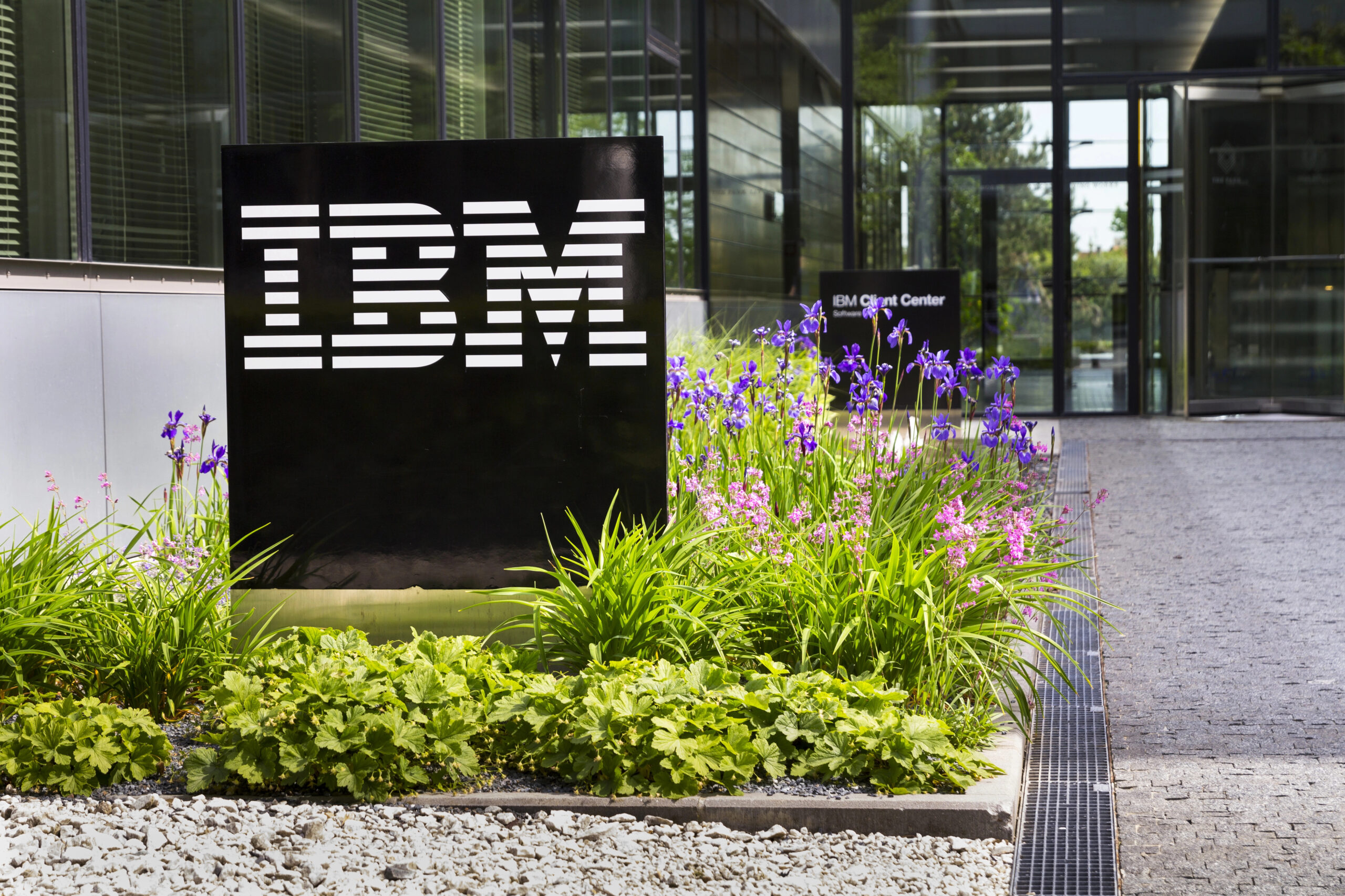IBM’s $6.4 billion acquisition of HashiCorp reshapes hybrid cloud solutions, combining IBM’s hybrid cloud and AI expertise with HashiCorp’s infrastructure and security management. This strategic move enhances capabilities for managing complex multi-cloud environments, offering a more comprehensive platform. The integration promises improved operational efficiency and cloud strategy optimization. As businesses navigate evolving cloud landscapes, this acquisition highlights IBM’s commitment to innovation and leadership in hybrid cloud solutions. It underscores the importance of adapting to advanced technologies for future growth and efficiency.
IBM Acquires HashiCorp for $6.4 Billion: A Transformative Move

Strategic Expansion of Hybrid Cloud Capabilities with HashiCorp
IBM’s acquisition of HashiCorp marks a significant milestone in the tech giant’s journey to dominate the hybrid cloud market. By integrating HashiCorp’s renowned Infrastructure and Security Lifecycle Management tools, IBM is poised to offer a more comprehensive and robust hybrid cloud platform. This move aligns perfectly with the growing demand for scalable and secure cloud infrastructure solutions, enabling IBM to better serve its enterprise clients’ evolving needs.
Enhancing Automation and AI Offerings
The $6.4 billion deal underscores IBM’s commitment to investing in cutting-edge automation software. HashiCorp’s expertise in managing complex hybrid and multi-cloud environments will complement IBM’s existing AI capabilities, creating a powerful synergy. This combination promises to streamline operations, optimize IT expenditures, and drive innovation for businesses navigating the digital landscape.
Impact on the Cloud Computing Landscape
As cloud adoption continues to accelerate, IBM’s strategic acquisition positions the company as a formidable player in the hybrid cloud arena. By leveraging HashiCorp’s tools and technologies, IBM can now offer clients enhanced security measures, faster innovation cycles, and greater cloud value. This move is likely to reshape the competitive landscape, challenging other major cloud providers and potentially setting new industry standards for hybrid cloud solutions.
Hybrid Cloud: The Future of Enterprise IT Infrastructure
In today’s rapidly evolving digital landscape, hybrid cloud architecture has emerged as the cornerstone of modern enterprise IT infrastructure. This innovative approach combines the best of both worlds: the security and control of private clouds with the scalability and flexibility of public cloud services.
Bridging the Gap Between On-Premises and Cloud
Hybrid cloud solutions enable organizations to seamlessly integrate their existing on-premises systems with cloud-based services. This integration allows for greater agility, enabling businesses to rapidly deploy new applications and services while maintaining control over sensitive data and legacy systems.
Enhancing Scalability and Cost-Efficiency
One of the key advantages of hybrid cloud infrastructure is its ability to scale resources on-demand. Companies can leverage public cloud services for high-volume, fluctuating workloads while keeping mission-critical applications on private infrastructure. This flexibility not only improves performance but also optimizes costs by aligning IT expenditure with actual usage.
Strengthening Security and Compliance
As cyber threats continue to evolve, hybrid cloud architectures offer robust security measures. Organizations can implement comprehensive security protocols across both on-premises and cloud environments, ensuring data protection and regulatory compliance. This multi-layered approach provides enhanced visibility and control over sensitive information, addressing the growing concerns around data sovereignty and privacy.
By embracing hybrid cloud solutions, enterprises are positioning themselves to thrive in an increasingly digital-first world, balancing innovation with security and efficiency.
HashiCorp and Its Automation Tools: Revolutionizing Cloud Management
HashiCorp’s suite of automation tools is transforming the way organizations manage complex cloud environments. These innovative solutions address critical challenges in infrastructure provisioning, security, and application deployment across hybrid and multi-cloud ecosystems.
Streamlining Infrastructure Management with HashiCorp
HashiCorp’s flagship product, Terraform, enables teams to define and provision infrastructure as code. This approach allows for consistent, version-controlled deployments across various cloud providers. By automating resource creation and management, Terraform significantly reduces manual errors and accelerates the development process.
Enhancing Security and Access Control with Technology from HashiCorp
Vault, another key offering from HashiCorp, provides robust secrets management and data protection. It centralizes the storage of sensitive information such as API keys, passwords, and certificates. Vault’s dynamic secrets generation and fine-grained access controls help organizations maintain a strong security posture in distributed environments.
Simplifying Service Discovery and Networking
Consul, HashiCorp’s service mesh solution, facilitates service discovery, configuration, and segmentation. It enables seamless communication between microservices, regardless of their underlying infrastructure. This capability is crucial for organizations adopting cloud-native architectures and looking to improve application resilience and scalability.
By integrating these powerful tools into IBM’s portfolio, enterprises gain a comprehensive platform for managing the entire infrastructure and security lifecycle. This acquisition positions IBM to deliver more value to clients seeking to optimize their hybrid cloud strategies and accelerate digital transformation initiatives.
Integrating HashiCorp ‘s Capabilities: Enhancing IBM’s Hybrid Cloud Offerings
The acquisition of HashiCorp marks a significant milestone in IBM’s strategy to strengthen its hybrid cloud and AI offerings. By incorporating HashiCorp’s expertise in Infrastructure and Security Lifecycle Management, IBM is poised to deliver a more comprehensive and robust hybrid cloud platform to its clients.
Streamlining Multi-Cloud Management with HashiCorp
HashiCorp’s suite of automation tools will enable IBM to offer enhanced solutions for managing complex hybrid and multi-cloud environments. This integration will allow enterprises to navigate the intricacies of diverse cloud infrastructures with greater ease and efficiency. Clients can expect streamlined processes for provisioning, securing, and scaling their cloud resources across multiple providers.
Accelerating Innovation and Security
With HashiCorp’s capabilities now part of IBM’s arsenal, clients will benefit from accelerated innovation cycles and bolstered security measures. The combined technologies will empower organizations to:
Deploy applications faster across various cloud environments
Implement consistent security policies across their entire infrastructure
Automate compliance and governance processes
Maximizing Cloud Value
IBM’s integration of HashiCorp’s tools aligns with its commitment to helping clients extract maximum value from their cloud investments. By automating complex tasks and providing a unified approach to cloud management, businesses can optimize their IT expenditures and significantly reduce operational costs. This synergy between IBM and HashiCorp technologies promises to deliver a more cost-effective and agile cloud experience for enterprises of all sizes.
The Strategic Significance of the IBM-HashiCorp Acquisition
Expanding IBM’s Hybrid Cloud Capabilities
IBM’s $6.4 billion acquisition of HashiCorp marks a significant milestone in the tech giant’s strategy to dominate the hybrid cloud market. By integrating HashiCorp’s expertise in Infrastructure and Security Lifecycle Management, IBM is poised to offer a more comprehensive and robust hybrid cloud platform. This move allows IBM to address the growing demand for scalable and secure cloud infrastructure solutions, enabling clients to innovate faster and enhance their security measures.
Synergizing Automation and AI
The acquisition aligns perfectly with IBM’s ongoing investments in automation software. HashiCorp’s automation tools, when combined with IBM’s AI capabilities, create a powerful synergy. This integration promises to optimize IT expenditures and reduce operational costs for enterprises managing complex hybrid and multi-cloud environments. By streamlining these processes, IBM can help its clients maximize the value they derive from their cloud investments.
Strengthening Market Position
This strategic move underscores IBM’s commitment to strengthening its position in both the hybrid cloud and AI sectors. As businesses increasingly rely on multi-cloud strategies, IBM’s enhanced offerings will likely appeal to a broader range of clients. The acquisition not only expands IBM’s product portfolio but also brings in HashiCorp’s expertise and customer base, potentially opening new market opportunities and solidifying IBM’s role as a leader in enterprise cloud solutions.
All In All
The implications of IBM’s acquisition of HashiCorp are clear, that this move will significantly reshape the hybrid cloud landscape. By combining IBM’s extensive resources with HashiCorp’s innovative tools, your organization can expect more robust, secure, and efficient cloud solutions. This merger promises to deliver enhanced value, streamlined operations, and accelerated innovation for businesses navigating complex multi-cloud environments. As the deal progresses towards its anticipated closure, you should closely monitor how this acquisition may impact your current cloud strategy and future IT investments. Ultimately, this landmark transaction underscores the critical importance of adaptable, scalable cloud infrastructure in today’s rapidly evolving digital ecosystem.
More Stories
Microsoft Elevates AI Shopping with Safety-First Model Rankings
With the introduction of a safety-first metric to its Azure Foundry model leaderboard, Microsoft empowers cloud customers to make more informed decisions.
CrowdStrike and Microsoft Unite to Harmonize Cyber Threat Attribution
CrowdStrike and Microsoft aim to harmonize the fragmented landscape of cyber threat attribution. Historically, varied naming conventions often muddled threat intelligence. This collaboration aims to standardize terminology.
Nomupay and SoftBank Forge Path to Seamless Cross-Border Payments in Asia
In today's world, seamless financial transactions are essential for global commerce. Nomupay and SoftBank are leading a major change in...
GCash and Open Fabric Launch NFC Payments in the Philippines
GCash and Open Fabric revolutionize the payment experience in the Philippines with NFC as they launch a groundbreaking Tap to Pay feature.
Mozilla Deploys AI-Driven Shield to Combat Crypto-Stealing Firefox Extensions
The deployment of an AI-driven shield from Mozilla leverages automated risk assessment to scan wallet-related add-ons for potential threats.
Sisense Intelligence: Transforming Data into Action with Generative AI
Sisense Intelligence offers a seamless experience, allowing you to interact with data using natural language and generate insightful dashboards without the need for complex coding.


